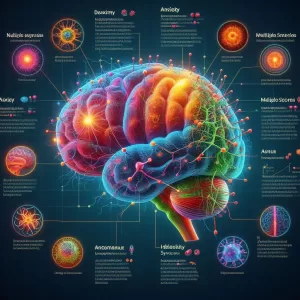Qu'est-ce que le trouble de stress post-traumatique (TSPT) ?
Désolé, aucun message n'a été trouvé.
## What is Post Traumatic Stress Disorder (PTSD)?
**Q: What is Post Traumatic Stress Disorder (PTSD)?**
**A:** Post Traumatic Stress Disorder (PTSD) is a mental health condition that can develop after experiencing or witnessing a traumatic event. It is characterized by certain symptoms that can persist for months or even years after the event. These symptoms can significantly impair an individual’s daily life, relationships, and overall well-being.
**Q: What are the Common Causes of PTSD?**
**A:** PTSD is commonly triggered by experiencing or witnessing extreme or life-threatening events, such as:
– Combat exposure
– Natural disasters
– Violent crimes
– Sexual assault
– Child abuse
– Witnessing the death or injury of others
**Q: What are the Symptoms of PTSD?**
**A:** PTSD symptoms typically fall into four main categories:
– **Intrusive Memories:** Unwelcome and intrusive thoughts, images, or flashbacks of the traumatic event.
– **Avoidance:** Avoidance of people, places, or activities that remind the individual of the trauma.
– **Negative Cognitions and Mood:** Negative beliefs about oneself, others, or the world; feelings of guilt, shame, or hopelessness; depression; anxiety; or difficulty feeling joy.
– **Arousal and Reactivity:** Hypervigilance, exaggerated startle response, irritability, agitation, sleep disturbances, or difficulty concentrating.
**Q: How is PTSD Diagnosed?**
**A:** A healthcare professional, such as a psychiatrist or therapist, can diagnose PTSD based on a thorough evaluation that includes:
– Patient’s account of the traumatic event
– Symptoms the individual is experiencing
– Duration and severity of symptoms
– Impact of symptoms on daily life
**Q: What are the Treatment Options for PTSD?**
**A:** The primary treatment options for PTSD include:
– **Therapy:** Cognitive behavioral therapy (CBT), trauma-focused therapy, and exposure therapy are effective in reducing PTSD symptoms.
– **Medication:** Antidepressants and anti-anxiety medications can help manage the emotional symptoms of PTSD.
– **Self-Help Strategies:** Relaxation techniques, mindfulness, exercise, and social support can aid in symptom management.
**Q: Can PTSD be Prevented?**
**A:** While not always preventable, there are steps individuals can take to reduce the risk of developing PTSD after a traumatic event:
– Seeking professional help immediately after the event
– Sharing the experience with trusted individuals
– Engaging in self-care and relaxation techniques
– Building a strong support system
2 commentaires
Laisser un commentaire
Articles populaires








this is a very informative post, especially about the different causes of it and treatments for ptsd
This article provides a comprehensive overview of PTSD, including its symptoms, causes, and various treatment options.